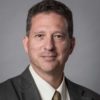Pope Francis called together a Synod of Bishops from around the world to wrestle with questions surrounding “Young People, the Faith, and Vocational Discernment.” The synod met against the backdrop of an international sex-abuse crisis that—like storm clouds—swirls around the bishops as they gathered to address the challenges of speaking to young people today.
The Working Document for the Synod (the Instrumentum Laboris, IL) offers extended commentary on the situation of young people today and calls the Church to recognize the times and respond with faith-filled discernment to the needs of the world’s youth. There are many topics in the Working Document that the bishops are asked to engage. I will draw attention to three topics that I believe are critical if the Church is going to speak to and evangelize young people in the middle of the crisis we face.
First, despite the many challenges and obstacles that young people face today, we need the courage and conviction to call young people to follow Jesus wholeheartedly as disciples, and the confidence to enlist them quickly in communicating the joy of the Gospel to their peers. “The destination of Jesus’ call is disclosed only when we follow Christ, which is dialogue and relationship with the Master” (IL, 92). The devastating failures coming to light in the Church could produce a spirit of defeat or a withdrawal from engagement with our culture. Instead, we need a humble and bold return to the core of the Gospel message: our times need the life of Jesus more than ever.
Second, the Working Document highlights a growing distrust by young people of institutions and brand identities: many young people no longer trust the Church or identify with her mission. Here there is need for personal accompaniment, and especially for real faith communities where young people can find a home. We can meet the general trend away from institutional identification by laboring to build—with the young people themselves—living and concrete experiences of Catholic life, often through smaller communities where trust can be established. Past strategies won’t suffice: “This truth must be testified to and practiced” (IL, 55). Young people—and older adults—need to see and experience their faith lived out concretely. From these living communities, young people can then go out and witness to Christ in the world.
Finally, the Working Document concludes on just the right note: the call to holiness. Scandals and failures point to the need for all of us to pursue the fruits of repentance and a life of genuine holiness. Citing Lumen Gentium, the Working Document for the Synod draws our attention to the centrality of holiness: “The concise and unifying hallmark of Christian life is holiness, because ‘the Lord Jesus, the divine Teacher and Model of all perfection, preached holiness of life to each and every one of His disciples of every condition. He Himself stands as the author and consummator of this holiness of life’” (IL, 212).
I recall with fondness twelve years of Catholic school, including four rewarding years in a Jesuit high school. We were learning the rudiments of our faith in the 1970s, a season of wide experimentation and much confusion. It was a difficult time for holding onto one’s faith—like learning to waterski in a windstorm—and many of my fellow students had abandoned their faith by early adulthood. But there were a handful of faculty members—Jesuits and lay teachers alike—who stood out as beacons for us. They communicated a sense of holiness: they were generous, welcoming, clear and unabashed in their faith. I remain grateful to them to this day for their witness of holiness.
If we in the Church are hoping to reach young people, to communicate the faith to them, and to call them into their various vocations, we need to invite them to take their place as missionary disciples in a concrete community of faithful disciples where a life of holiness and mercy is being pursued. The world around us deeply needs this witness.

